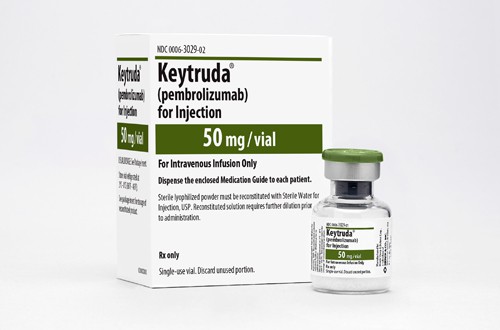
Merck & Co’s Keytruda has become the first PD-1/PD-L1 inhibitor to get approval in the US for non-muscle-invasive bladder cancer (NMIBC), extending its lead in the checkpoint inhibitor market.
Keytruda (pembrolizumab) has been cleared by the FDA for the treatment of patients with high-risk NMIBC who don’t respond to Merck’s TICE Bacille Calmette-Guérin (BCG) vaccine, used to boost the immune system’s response to the cancer, and are unwilling or unable to have surgery to remove the bladder.
NMIBC is the most commonly encountered form of bladder cancer, accounting for around 75% of the 80,000 new cases of bladder cancer seen every year in the US, according to Merck.
Around 30% to 40% of NMIBC patients don’t respond to BCG, and analysts at Leerink have previously predicted that approval in this setting could open up a market worth around $250m a year for Keytruda at peak in the US alone. Sales of the drug are expected to be around $10bn this year, driven mainly by its use in lung cancer.
The NMIBC category covers tumours that have started growing in the cells lining the bladder’s inner layer but have not yet spread to the muscle wall, and the FDA approval covers patients with early-stage high grade cancer cells – carcinoma-in-situ (CIS) – with or without papillary tumours.
Keytruda gets the new indication ahead of rivals in the checkpoint inhibitor class, including Bristol-Myers Squibb’s Opdivo (nivolumab), Roche’s Tecentriq (atezolizumab) and AstraZeneca’s Imfinzi (durvalumab) that are all in clinical testing for NMIBC.
Keytruda was filed for approval on the strength of the single-arm, phase 2 KEYNOTE-057 trial involving NMIBC patients who had been treated a median of 12 times with BCG but were still seeing disease progression.
Keytruda given every three weeks resulted in a complete response in 40% of patients at 12 weeks – the primary endpoint of the trial – which is at least twice the rate expected with chemo drugs. Merck is also running a phase 3 trial called Keynote-676 trial to confirm Keytruda’s activity in this type of cancer.
Keytruda has already been approved for first- and second-line treatment of urothelial carcinoma, another form of bladder cancer, but the new clearance provides “a new clinical option for a patient population that previously had limited FDA-approved therapies available”, according to Scot Ebbinghaus, vice president of clinical research at Merck Research Laboratories.
Meanwhile, other treatment approaches are also coming through development. Last month, Ferring Pharma and private equity firm Blackstone set up a gene therapy joint venture called FerGene to take forward a gene therapy for NMIBC which has already been granted a priority review by the FDA.




